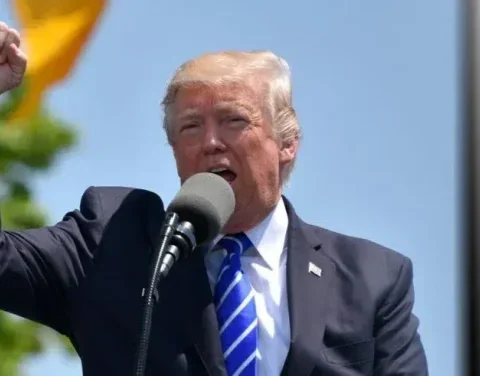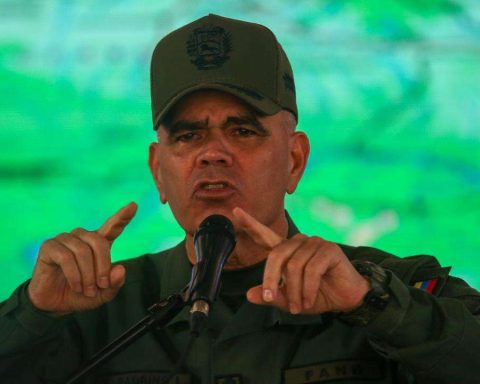The massive cancellation of non-governmental organizations, which already accumulates 669 legal entities and operation records eliminated in three and a half years, puts international cooperation for development in Nicaragua at risk, which benefits the most vulnerable and poor populations in the country.
“The objective of the regime is to stop any development that is not at the expense of state institutions. In the end, what is at stake is development cooperation because if you don’t have national or international civil society organizations, obviously you won’t have people who can manage those development projects, which come from that financing, which in Nicaragua is a right”, considered Amaru Ruíz, president of Fundación del Río, one of the NGOs canceled and confiscated since November 2018.
Sociologist and researcher Elvira Cuadra, director of the Center for Transdisciplinary Studies of Central America, andHe explained that with the massive cancellations of these organizations, the Daniel Ortega regime intends to eliminate all possible forms of social organization to prevent citizens from expressing their discontent or acting collectively.
“The attacks did not start in 2018, they have been since long before, but they actually intensified from there,” said Cuadra, who participated with Ruíz in a panel on the program This week.
Until June 16, 2022, the Ministry of the Interior and the National Assembly —controlled by the Ortega government— eliminated 669 associations, foundations, institutes and national and international organizations that in 90% they had more than a decade executing projects of development, education, health, human rights, cultural and other social initiatives aimed at indigenous peoples, women victims of gender violence, children and adolescents at risk, poor populations or with limitations of water.
“The State of Nicaragua has never had the capacity to cover the needs, nor to benefit people in conditions of vulnerability (…) The Government of Daniel Ortega tried before 2018 to implement its model of direct democracy, with different organizations promoted by themselves. , like the CPCs, and those forms of organization were a complete failure compared to the levels of organization and the level of work that the autonomous civil society organizations had in Nicaragua. So, it is definitely a space that it will not be able to fill and that leaves a large number of the population helpless,” Cuadra reiterated.
Organisms disposed of and confiscated
Parallel to the cancellation of legal status and operating records, many of these civil society organizations have lost their properties and buildings. According to Ruíz, who was pushed into exile in 2018, the Fundación del Río alone lost 22 properties.
“Here there is a situation of expropriation of the properties of these organizations and the effects are not only on the patrimony of the organizations, but on the citizens who are left unattended by these projects, because in the end the loser here is the people of Nicaragua, that they are going to stop benefiting from those projects promoted by those organizations,” he lamented.
According to the legislative decrees and the resolutions of the Migob, published in the official newspaper La Gaceta, the Ortega government ordered these organizations to liquidate their property or assets within 72 hours, otherwise the properties would become part of the State. , as provided in article 25 of Law 147, General Law on non-profit legal entities.
International cooperators require NGOs
Cuadra and Ruiz pointed out that the existence of NGOs in the country is essential for international donors to channel projects through them, and by eliminating them there will be a reduction in funds, which will be will worsen with the recent approval of Law 1115 o General Law for the Regulation and Control of Non-Profit Organizations”, which establishes a new applicable legal framework for Non-Profit Organizations.
“European and American cooperation requires international organizations that present project proposals, that are in charge of follow-up, monitoring, to develop those projects that come from those cooperation funds, and that is where international organizations establish cooperation agreements with local organizations to carry out social projects at the local, municipal, and national levels, so if you lose those gears, you are limiting the cooperation for development that can enter Nicaragua,” Ruíz explained.
Cuadra stressed that the Ortega government will suffer the consequences of these eliminations, mainly because its management has failed to meet the needs of the population due to lack of capacity. For example, during the pandemic, despite the funds and loans he had access to, he was unable to execute them on time.
CONFIDENTIAL revealed that in 2021, the year with the greatest impact of covid-19, the State executed until the last quarter 79.8% of the budget allocated to covid-19 care. This under-execution left the population unprotected due to the shortage of vaccines and the passage of the second wave.
Civil society is resilient
Ruíz and Cuadra agreed that although these cancellations also seek to limit the forms of social organization in Nicaragua, in recent years it has been shown that they have resistance and continue to work, even from exile or within the country, as is the case of the Center Nicaraguan Human Rights (Cenidh).
“In the case of Fundación del Río we survive thanks to the support of the fabric of the social base that we have in the territories and that trusts in the work of the organizations. Several organizations continue to work in the country, despite the arbitrary closure of their legal registry. Legal registration does not kill organizations, obviously it makes work difficult due to all the legality that covers the process of executing development projects,” Ruíz explained.
Among the requirements that social organizations must meet to be considered for cooperation is having a level of administrative and financial compliance, making their resources transparent, but as a result of the cancellations, strategies have had to be developed so that civil society continues its work in this new scene.
“That is, due to the crisis of freedom of association that exists in the country, it is required in various ways to continue working and only if it can be done if you maintain the social fabric that you built for years, then, without the participation of society. Nicaraguan, in the execution of projects, in a strategy of civil society organizations is going to be impossible, but the solidarity of citizens continues to be active, in resistance”, affirmed the activist.
Cuadra highlighted that, as of 2018, ties have emerged that strengthen that social capital and this is crucial for continuity. “So it is very difficult for the Ortega Murillo regime to put an end to that desire for participation and organization of the population, which already knows and is aware of the benefits of having its own organizations and being able to participate in public affairs in Nicaragua” .
















